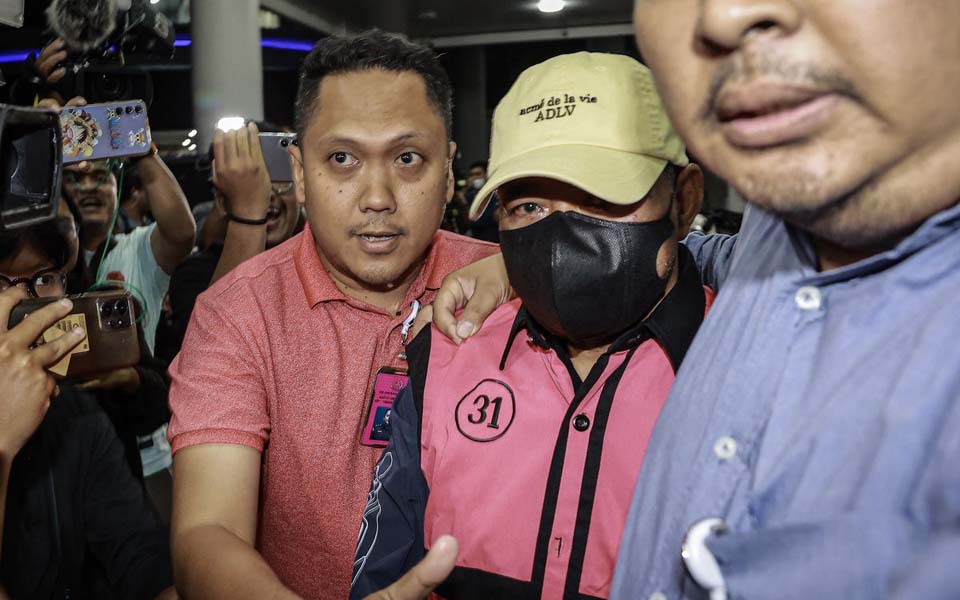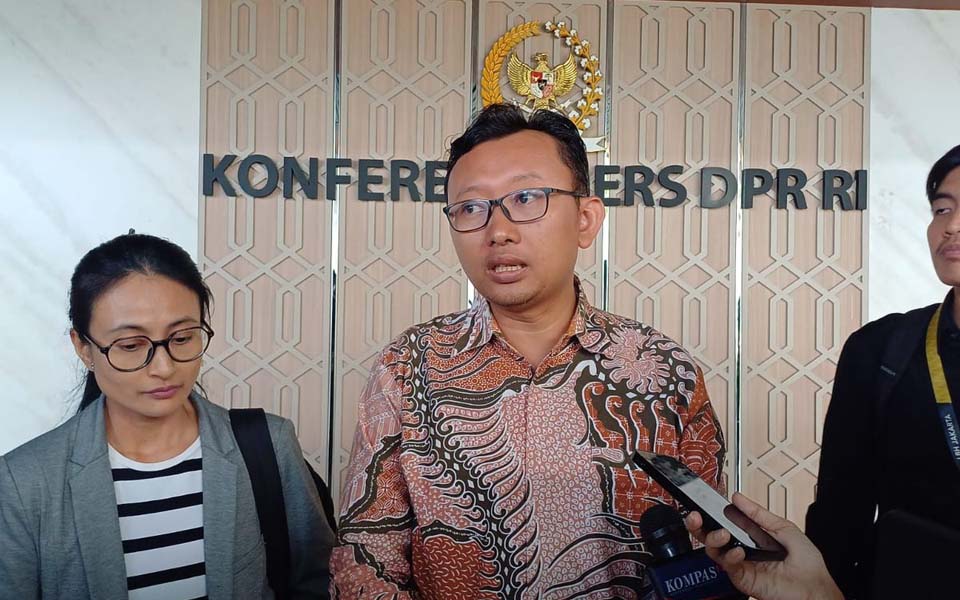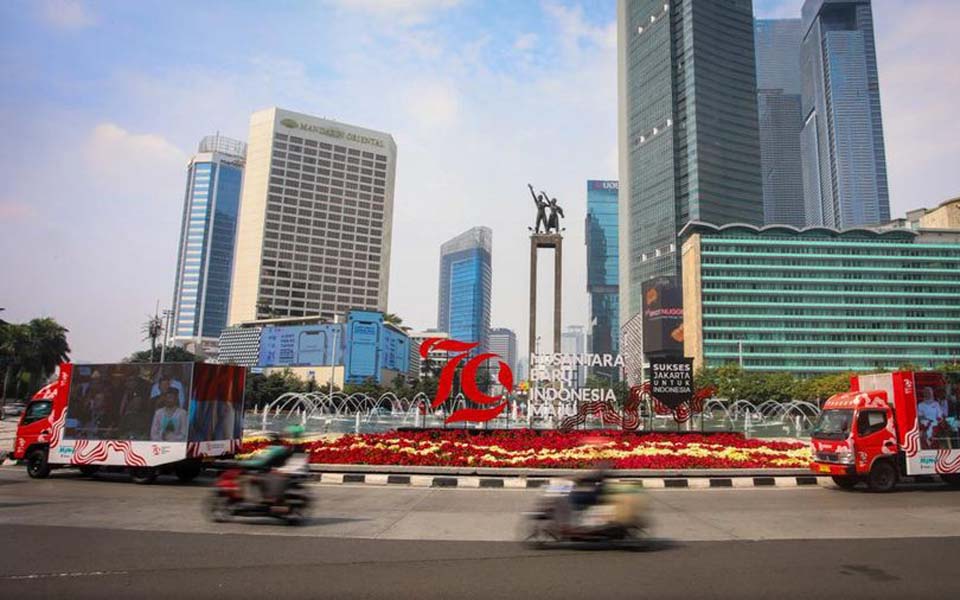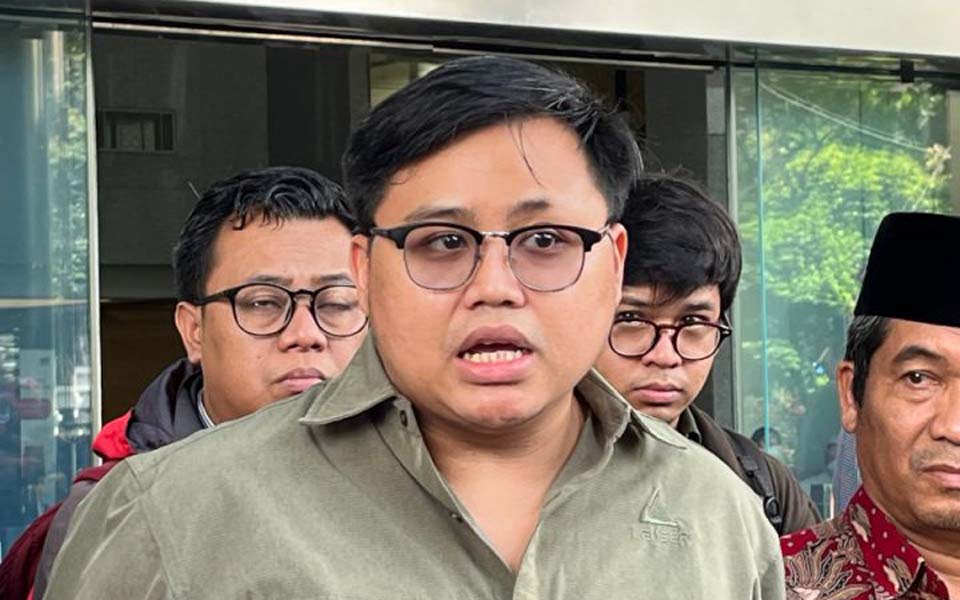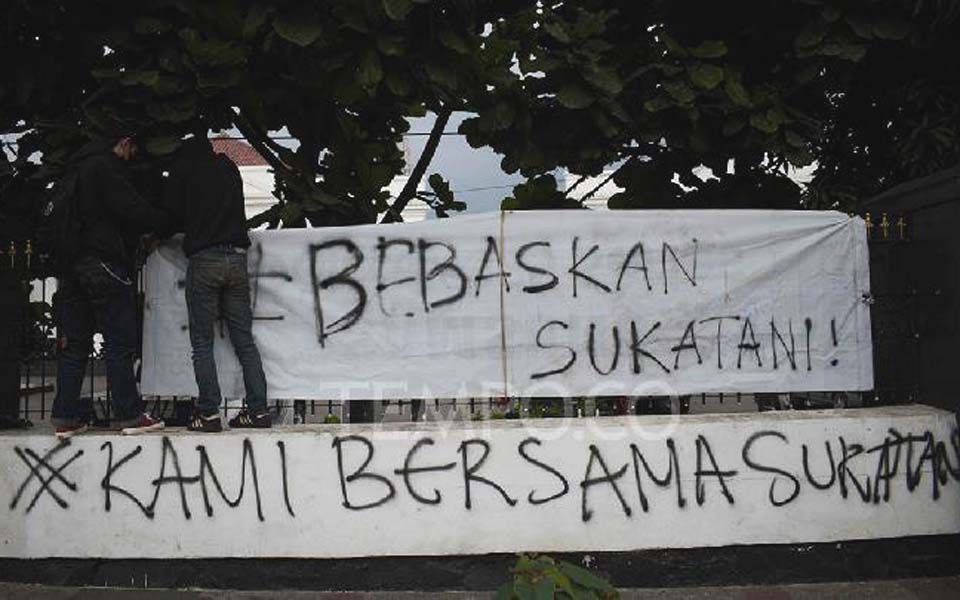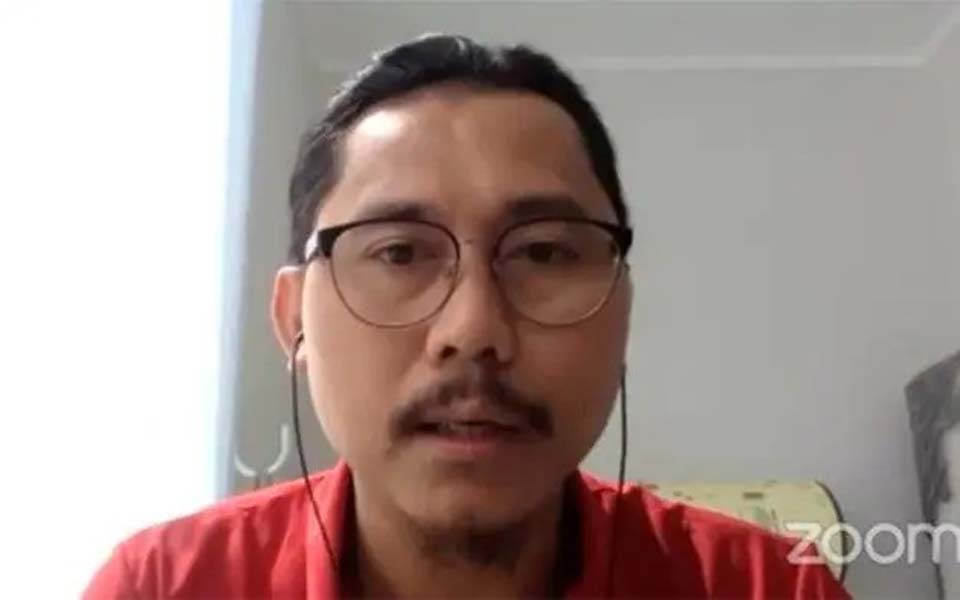The greatest obstacle to upholding the law in Indonesia is located in the capacity and resoluteness of law enforcement agencies in the enforcement of legislation, rather than the need to compliment or clarify existing legal instruments. Although improvements to the legal system need to be made, improving the capacity and resoluteness of law enforcement institutions however, is the more pressing task.
This was the conclusion drawn from the results of a Kompas survey which focused on the poor condition of law enforcement at the moment and in relation to people’s views on a number of proposed additional regulations in the Draft Criminal Code (RUU KUHP).
According to half (50 per cent) of respondents, the decline in the quality of law enforcement is a consequence of a lack of resoluteness and the capacity on the part of law enforcement agencies in taking action against various of violations in society.
Only nine per cent of respondents were of the view that the lack of clarity of legal instruments are an obstacle to law enforcement, while complementing legal instruments was a consideration for only seven per cent of respondents.
This was also reflected in a series of earlier surveys which concluded that the biggest problem is the lack of legal justice which is mainly is caused by the poor effort by institutions rather than existing regulations.
Nevertheless, there have been a number of social developments which certainly demand the accommodation of new issues in society’s sense of justice. A number of national legal instruments such as the Criminal Code, the Civil Code, trade laws and procedural laws do not yet meet the new needs of society because they were adopted from a legal system during the colonial period which was more than a century ago.
Because of this, for 27 per cent of respondents in the survey, complementing legal instruments and their enforcement by legal institutions are issues which cannot be separated in the effort to enforce the law in Indonesia.
Aside from whether or not there is a need for a number of legal instruments to be improved, a number of facts indicated that in truth much of the legislation at the moment is still not able to be enforced effectively. The clearest example being regulations on combating corruption.
Various efforts by the government in the form of appeals to establish laws and anti-corruption teams, up until now have also not been able to wipe out such criminal acts. The reality is that the threat of a life sentence which is contained in Article 33 of Law Number 31/1999 on the elimination of corruption is like a paper tiger. The reality is that not a single person among the scores of big time corrupters have actually received such heavy sentences.
The irony is that these days, corruption is actually spreading even further. The results of a recent survey which was released by Transparency International Indonesia showed that in the last three years Indonesia has slipped to the position of the fifth most corrupt country of 113 countries which were evaluated.
In view of these conditions therefore, its is natural that most respondents (59 per cent) were of the view that corruption represents the greatest legal problem for this country and it should be the most pressing and most important issue to be resolved quickly.
Certainly, in many aspects, there are a number of obstacles in efforts to enforce the law in Indonesia. From the aspect of the efforts of the authorities for example, a number of peculiar problems emerge. The police, judges, prosecutors and lawyers are the dominate factor in enforcing the law and the reality is that they are seen as not being free from intervention.
Intervention can come from the involvement of control over their authority and from the court mafia within the law enforcement institutions themselves. In a Kompas survey last September, the generally bad picture or image of law enforcement was held by 72 per cent of respondents.
In relation to a number of new issues which it is planned will be regulated by the Criminal Code such as black magic, illicit sex and press freedom, the public’s view can be seen as one of uncertainty.
On the issue of immoral acts for example, on the one hand society feels that the values which they live by are not in accordance with these acts, on the other hand however, the public is also not convinced that legally enforcing these issue can be done in an effective and democratic manner.
In spite of this, 53 per cent of respondents were convinced that new additions to the stipulations in the Criminal Code will reduce immoral acts in society, the other 40 per cent of respondents said was they were not convinced.
This attitude is also very different from what was indicated on the issue of including acts of black magic as a crime in the draft Criminal Code, which in the public’s view, on the one hand accommodates the reality of social life and on the other hand raises a question mark for society.
Although the majority of respondents (69 per cent) stated that they believed that there black magic forces in society, they did not believe that acts of black magic could be later proven in court. The majority of respondents (66 per cent) did not believe that black magic can be proven legally.
The tendency for the publics assessment to be divided was also picked up in their attitudes towards press freedom and attitudes on the dissemination of Marxist and communist ideology.
In fact, this attitude which is full of uncertainty arose when they were presented with questions on the capacity of legal institutions in Indonesia to enforce new regulations in the criminal law. Moreover, more than half (53 per cent) were of the view that legal institutions at the moment do not have the resolve, whatever the new legal structure might be.
Aside from the issue of legal institutions, another reason which is behind the uncertainty in the public’s minds is the character of acts in society itself which often become a contributor to the abuse of efforts to enforce the law. The findings of the previous survey also showed evidence of this.
[Toto Suryaningtyas/Litbang Kompas. Translated by James Balowski.]






